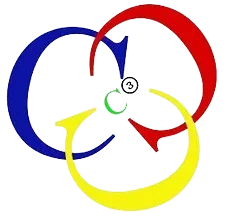Homeopathy is more than two centuries old, yet it continues to grow, evolve, and adapt to the changing world. What began as a simple, elegant healing philosophy by Dr. Samuel Hahnemann has now branched into multiple schools of thought, enriched by clinical experience, global research, and diverse patient needs. At Ccube Homeopathy, under the guidance of Dr. Rashmi Chandwani, patients often ask: What is the difference between classical and modern homeopathy? Which approach is better for long-term healing?
To understand this, imagine homeopathy as a majestic tree.
- The trunk, strong and grounded in Hahnemann’s teachings, represents classical homeopathy.
- The branches, dynamic and constantly adapting, represent modern homeopathy.
Both grow from the same roots, yet each has its own style, rhythm, and depth of healing.
This discussion also aligns naturally with several common questions patients ask, such as: Which is stronger—200C or 30C? What should I avoid during homeopathic treatment? Which homeopathic degree is best—DHMS or BHMS? How do homeopathic holistic remedies differ from modern medicine? What are the four traditional medical systems?
Let’s explore each of these topics through the lens of classical and modern homeopathy—and how Dr. Rashmi Chandwani integrates both for the most effective healing outcomes.
-
What Is Classical Homeopathy?
Classical homeopathy is the most traditional and purest form of homeopathic practice. It follows the foundational principles of Dr. Hahnemann exactly as laid out in the Organon of Medicine. At Ccube Homeopathy, Dr. Rashmi Chandwani uses classical methods whenever deep constitutional healing is needed.
Key Features of Classical Homeopathy
- A single remedy at a time
- The minimum dose
- Treatment based on the totality of symptoms
- Detailed case-taking covering emotions, personality traits, physical symptoms, and past medical history
- Strong adherence to holistic philosophy
A classical homeopath listens to a patient’s life story as if reading a novel—seeking the emotional thread that connects their physical and mental patterns. This approach is deeply personal, reflective, and transformative.
Many patients at Ccube Homeopathy prefer classical homeopathy because it offers profound, long-lasting healing and respects the uniqueness of every individual—an approach central to Dr. Rashmi Chandwani’s practice.
-
What Is Modern Homeopathy?
As lifestyles, diseases, and patient expectations changed, homeopathy evolved to meet contemporary needs. Modern homeopathy introduces flexibility, practicality, and multi-layered treatment strategies—ideal for today’s chronic cases.
Modern Homeopathy May Include
- Combination remedies
- Organ-specific support
- Condition-based (clinical) prescribing
- Layered prescribing using multiple remedies in sequence
- Integrative approaches with diet, lifestyle, and preventive care
If classical homeopathy is like a solo violinist playing a pure, soulful note, modern homeopathy is a full orchestra—layered, rich, and adaptive.
Both approaches hold immense value, and a skilled practitioner like Dr. Rashmi Chandwani at Ccube Homeopathy knows when to apply each one for maximum healing.
-
Which Is Stronger – 200C or 30C?
Potency determines how deeply and energetically a remedy acts.
- 30C acts on a gentler, mostly physical level.
- 200C penetrates deeper—affecting emotional, mental, and systemic layers.
So yes, 200C is stronger than 30C. But at Ccube Homeopathy, Dr. Rashmi Chandwani emphasizes that “stronger” does not mean “better.”
A potency must match:
- The patient’s vitality
- Sensitivity
- Nature and duration of illness
Giving a high potency at the wrong stage is like playing loud music in a silent room—overwhelming instead of healing.
-
Differences Between Homeopathic Holistic Remedies and Modern Medicine
Many patients at Ccube Homeopathy ask how homeopathy compares to modern allopathic medicine. The differences are profound.
Homeopathic Treatment (as practiced by Dr. Rashmi Chandwani at Ccube Homeopathy):
- Focuses on the root cause
- Views symptoms as signals, not enemies
- Uses ultra-diluted remedies to stimulate innate healing
- Considers emotions, stress, sleep, habits, and personality
- Has minimal side effects
Modern Allopathic Medicine:
- Works directly on physiology
- Has fast action, especially for emergencies
- Often suppresses symptoms
- Can cause side effects due to chemical nature
-
Which Is Better – DHMS or BHMS?
For students aspiring to become homeopaths, this question is extremely common.
DHMS (Diploma)
- Duration: 4 years
- Basic homeopathic education
- Limited clinical exposure
BHMS (Bachelor’s Degree)
- Duration: 5.5 years + internship
- Covers medicine, surgery basics, gynecology, pathology, anatomy, physiology, pharmacology
- Offers extensive clinical training
- Recognized as a full medical qualification
BHMS is generally considered the best and most complete homeopathic degree, and at Ccube Homeopathy, many patients trust the expertise of BHMS-trained doctors like Dr. Rashmi Chandwani for holistic, safe, and structured care.
-
Which Is Better – Physiotherapist or BHMS?
These two professions are not competitors; they serve completely different medical needs.
- A BHMS doctor treats internal conditions such as asthma, allergies, thyroid disorders, PCOS, anxiety, migraines, or skin diseases.
- A physiotherapist helps with physical rehabilitation, joint issues, sports injuries, or post-surgical recovery.
Patients at Ccube Homeopathy often benefit from BHMS-level expertise, especially when dealing with chronic, recurrent conditions requiring deep systemic healing.
-
What Should You Avoid in Homeopathy?
To ensure your medicines work optimally, Dr. Rashmi Chandwani advises patients at Ccube Homeopathy to avoid certain things around dosing:
- Strong coffee or excessive caffeine
- Raw onion or garlic immediately before or after remedies
- Mint-based toothpaste or chewing gum
- Smoking or alcohol
- Abruptly stopping ongoing medications
- Self-medication
- Taking multiple remedies without guidance
Homeopathy is gentle but precise, and avoiding these helps maintain clarity in its action.
-
Which Homeopathy Degree Is Best?
Once again, BHMS stands out due to:
- Medical-level training
- Regulatory recognition
- Better clinical exposure
- Broader career options
Many reputable homeopaths, including Dr. Rashmi Chandwani of Ccube Homeopathy, hold a BHMS degree due to its depth and scientific foundation.
-
What Are the Four Traditional Medicines?
Across the world, traditional medical systems are recognized for their holistic wisdom:
- Homeopathy
- Ayurveda
- Traditional Chinese Medicine (TCM)
- Unani
Homeopathy, though the youngest, has grown rapidly and is now widely practiced in India, Europe, and many other regions. Clinics like Ccube Homeopathy, under doctors like Dr. Chandwani, continue to make it accessible, scientific, and patient-centered.
Final Thoughts
The difference between classical and modern homeopathy is not about superiority—it is about suitability. Each method has its beauty:
- Classical homeopathy is timeless, philosophical, and deeply diagnostic.
- Modern homeopathy is adaptive, layered, and ideal for the complexities of modern illnesses.
At Ccube Homeopathy, Dr. Rashmi Chandwani blends both approaches seamlessly—choosing what is best for each patient’s unique needs, personality, lifestyle, and healing potential.
A good homeopath knows when to use classical depth, when to use modern practicality, and when to combine both. Ultimately, the goal remains the same: to guide each patient toward genuine recovery, from the root to the result.



